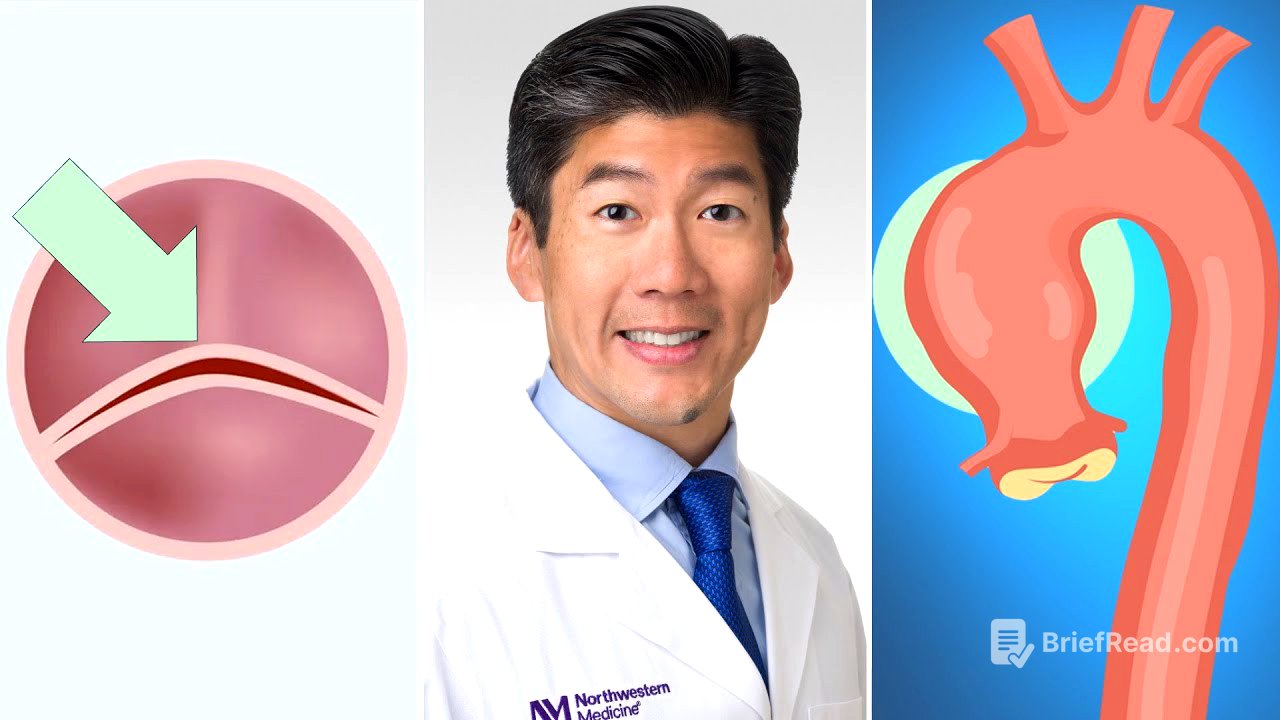TLDR;
This video features Adam from HeartValveSurgery.com interviewing Dr. Chris Malazery, a cardiac surgeon at Northwestern Medicine, about the connection between bicuspid aortic valves, connective tissue disorders, and aneurysms. Dr. Malazery explains that patients with bicuspid aortic valves are more prone to aneurysms in the aorta and its branches. He also describes the surgical procedure to address aortic aneurysms, which involves resecting the diseased portion of the aorta and replacing it with a Dacron graft.
- Bicuspid aortic valves can increase the risk of aneurysms.
- Aneurysms are treated by resecting the affected aortic section and replacing it with a graft.
- Connective tissue disorders should be considered when diagnosing and treating patients with bicuspid aortic valves and aneurysms.
Intro [0:04]
Adam from HeartValveSurgery.com is at the Society of Thoracic Surgeons Conference in Los Angeles, California, joined by Dr. Chris Malazery from Northwestern Medicine in Chicago. They discuss new research and address patient questions, specifically one from Lily about connective tissue disorders and bicuspid aortic valves.
Bicuspid Aortic Valves and Aneurysms [0:39]
Dr. Malazery addresses Lily's question about the susceptibility of individuals with bicuspid aortic valves and connective tissue disorders to additional aneurysms. He confirms that these patients are indeed more susceptible to aneurysms not only in the aorta but also in its branches. Diagnostic evaluation is crucial to identify coexisting aneurysms, as treatments are available. Aneurysms associated with bicuspid aortic valves typically occur in the ascending aorta.
Aneurysm Repair [1:36]
Dr. Malazery explains the surgical approach to fixing an aneurysm in the aorta. The procedure involves resecting, or completely removing, the diseased part of the aorta. In its place, a pre-manufactured Dacron graft, which is a plastic tube, is inserted. This graft replaces the removed section of the aorta, addressing the aneurysm.
Outro [2:21]
Adam thanks Dr. Malazery and his team at Northwestern Medicine for their work in helping patients with heart valve disease, connective tissue disorders, and aneurysms. He encourages viewers to subscribe to the YouTube channel and visit HeartValveSurgery.com for more information.









